
Impact Case Studies
The breadth and magnitude of ACEMS impact may be seen in the following case studies that feature some recent research projects and collaborations across industry, government and cross-disciplinary fields of research.
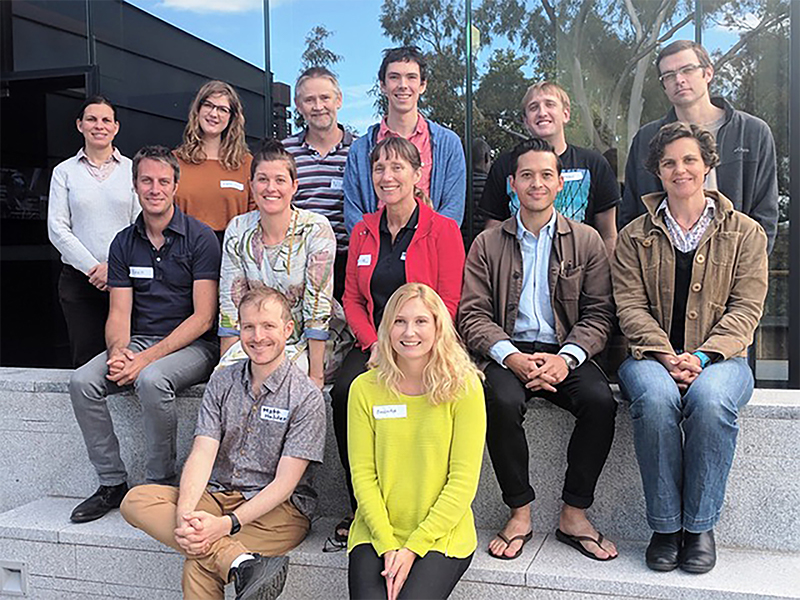
Some researchers from across many ACEMS nodes, and extended network, who’ve informed this ecological modelling research
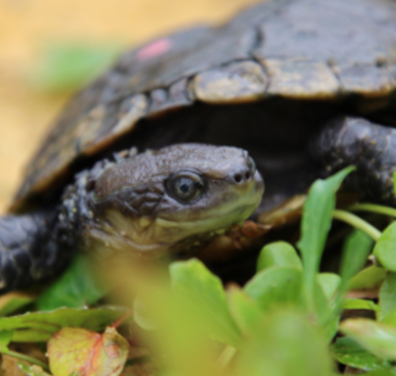
The most endangered Australian reptile, the Western Swamp Tortoise (Source: Perth Zoo)
Ecologists and ecosystem managers seek accurate predictions of the ecosystem-wide impacts of environmental management interventions to help manage complex ecosystems in response to environmental changes and human activity, and avoid unintentional adverse impacts from their interventions. This can be difficult with limited (time series) data sets, and it’s not clear how much data is required for a model to be useful.
To address this, researchers investigated whether dynamic models calibrated to noisy time series data provided better classification accuracy relative to uninformed predictions. They found they did (70% versus 50% classification accuracy), which suggests that models may not need to produce very accurate predictions before they can inform decisions that improve environmental outcomes. Further, these researchers showed that the classification accuracy of models could feasibly be further improved, by increasing monitoring accuracy and frequency. Learn more in this scientific article published in 2020 in Ecology Letters.
Since that publication of research, these techniques are now being applied to help diverse ecosystems in Australia and elsewhere for modelling the network of interacting species (1) Booderee National Park, Australian Capital Territory, to understand local declines in local species there; (2) in Western Australian swamps, to predict whether translocation of the extremely rare western swamp tortoise poses survival risks to other animals in these swamps; and (3) for guiding ecosystem management on California’s unique Channel Islands.

ACEMS stakeholder engagement coordinated a workshop to discuss data asset needs aligned to research by ACEMS members and partner CSIRO. This led to joint work and engagement with other stakeholders to support an application by CSIRO for joint funding to develop a comprehensive national scale human mobility data asset for Australia, to support diverse stakeholders’ needs, including utilising human mobility data in modelling the spread of infectious diseases (including Dengue and COVID-19) through and across populations. The final data asset will be hosted and made publicly available on the Australian Urban Research Infrastructure Network (AURIN).
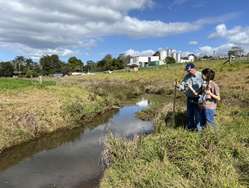
Rivers play a vital role in sustaining biodiversity, water security, and the economy, and improving monitoring accuracy and costs helps river management

Improved water level monitoring using data-driven approaches can help inform effective and equitable management of water, a critical resource
ACEMS researchers’ water monitoring work contributes to the management of water as a critical resource and our waterways and marine ecosystems. This work has included:
- collaborations with Healthy Land and Water on the use of next generation sensors for more agile and inexpensive river monitoring, to inform critical decisions about water allocation, flood mitigation, and environmental flow requirements; and creating a dashboard for decision support on microbial water quality risk given rainfall for recreational waterway sites
- methodological work, including analysis and use of different data-driven modelling approaches for quantifying water levels in underground aquifers (as significant water resources in Australia) in collaboration with CSIRO, to provide critical insights into the nature and sustainability of water and inform its management.

ACEMS research is helping public transport through improved understanding of dwell-time, useful for improving simulating on-road public transport and addressing tram-bunching challenges (where more than one tram arrives in short succession to serve passengers on the same route), for improved public transport services. In particular, as part of PhD research supported by VicRoads, ACEMS PhD student Samithree Rajapaksha collected Melbourne tram dwell time data and combined simulation and direct statistical survey for studying the distribution of tram dwell-time at selected spots in Melbourne.

Led by AI Paul Wu, ACEMS researchers have developed a number of decision-support tools to support elite athlete training, management, and performance, including in preparation for the Olympic games. In 2020, this included: (1) Delivering a decision-support dashboard for swimming to Swimming Australia and the Queensland Academy of Sport, for enabling prediction of winning times and historical analysis, to assist in managing swimmers’ training and competitions; and (2) a new project with Triathlon Australia to develop an agent-based modelling framework for Mixed-Relay Triathlon (MRT), an event debuting at the Tokyo Olympics.
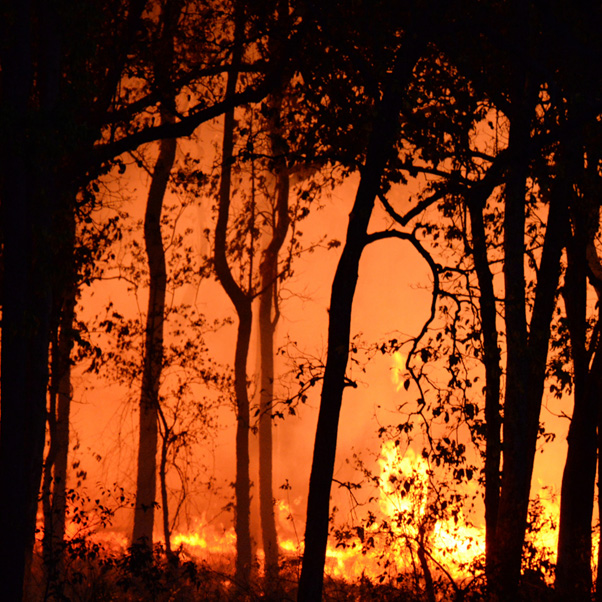
Contributions from ACEMS in relation to bushfires has included: (1) Quantifying the risk of severe fire weather, exacerbated by anthropogenic climate change, as at least 30% higher than the 2019/20 bushfires for BOM and CSIRO to use in bushfire inquiry submissions and reports; (2) Using Data analysis and a model for predicting fire ignition cause, and to dispute misinformation regarding arson; (3) At six ACEMS representatives participating in the ARDC’s multi-stakeholder bushfire challenge workshops, started late 2020, which resulted in a report identifying key priority areas to improve bushfire management.

Working with stakeholders across government, clinicians, cross-disciplinary researchers and partners, ACEMS researchers have played a critical role in helping inform Australia’s understanding of, preparedness and response to the COVID-19 pandemic. This has included: modelling COVID disease spread (to advise government, “flatten the curve”, limit risks, and compare international responses), risk mapping, impact modelling, disease/virus monitoring by advancing wastewater epidemiology; enabling rapid access of health data to inform patient care as part of the Clinical Data and Analytics Platform; understanding impacts on hospital queues and visits; enabling key knowledge exchange, across sectors, by hosting a COVID-19 workshop, and discuss new challenges, such as vaccine allocation decisions; and research translation, co-developing the innovative tool Safe Blues.
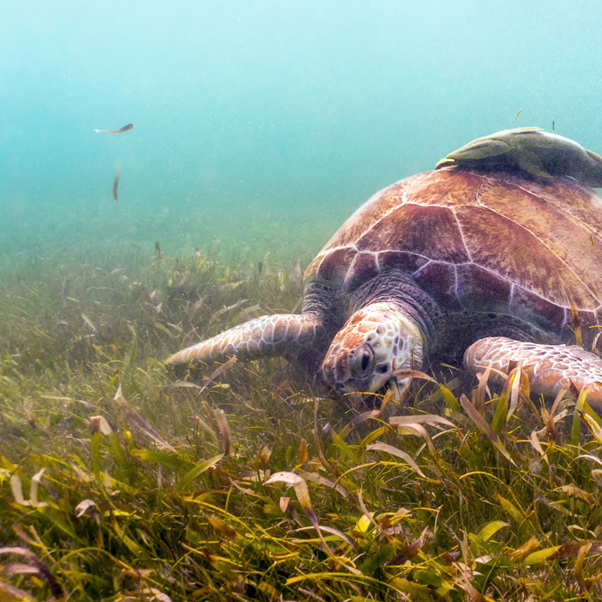
Monitoring seagrasses, and predicting their decline in the face of multiple stressors, is critical for protecting marine ecosystems. Seagrass communities are amongst the most productive and dynamic ecosystems, providing habitats and acting as substrate stabilisers. Researchers have developed an easy-to-use program to predict cumulative light and temperature stress on seagrass, based on a new model of decline which suggests net carbon loss rate controls shoot density decline rate in seagrass. They also provide a new generalisable cumulative stress index forecasted by model, including uncertainty. These help inform marine ecosystem management, including for research partners, the Great Barrier Reef Marine Park Authority and National Environmental Science Programme (NESP) Tropical Water Quality Hub. The free software program has more than 900 views and 20 downloads to date.
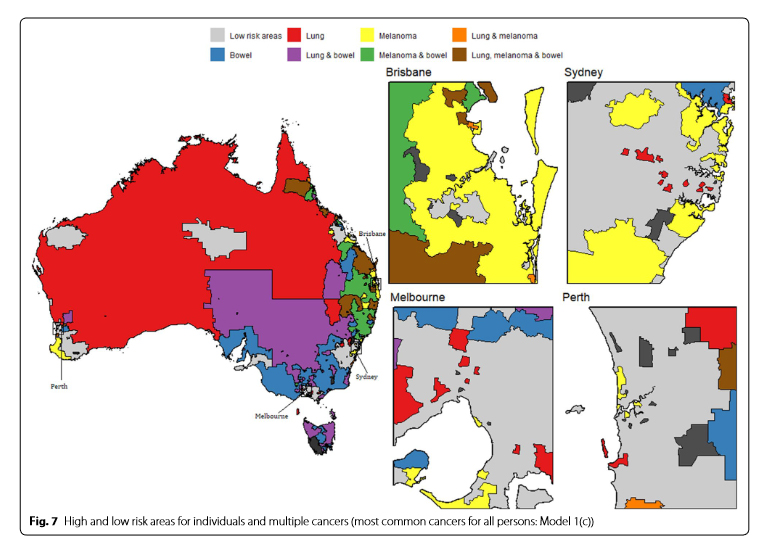
The award-winning Australian Cancer Atlas provides estimates of cancer incidence, mortality or survival across small geographical areas. Key developments improving atlas utility include: (1) a new multivariate Bayesian meta-analysis model which, applied to the Australian Cancer Atlas, can explore possible associations between cancer types in different regions; and further development with Cancer Council Queensland of (2) a practical guide for “Developing a Cancer Atlas using Bayesian Methods” using open source tools, to enable others, in light of use by a diversity of stakeholders in Australia (including in health and research) and international interest.

In collaboration with CSIRO, ACEMS AI Bonsoo Koo has advanced knowledge and tools useful for understanding and reducing risks for retirees in the superannuation system. This research, using CSIRO’s SUPA model, has economic and social importance as superannuation funds and the government seek to support retirees amidst challenges including increasingly fewer taxpayers to support pensioners and record low interest rates impacting returns and retirement income. One recent output of practical utility for superannuation stakeholders is an advanced tool to analyse the sustainability of popular drawdown strategies during retirement under the current pension and superannuation scheme, for optimal consumption and mitigation of longevity risk.
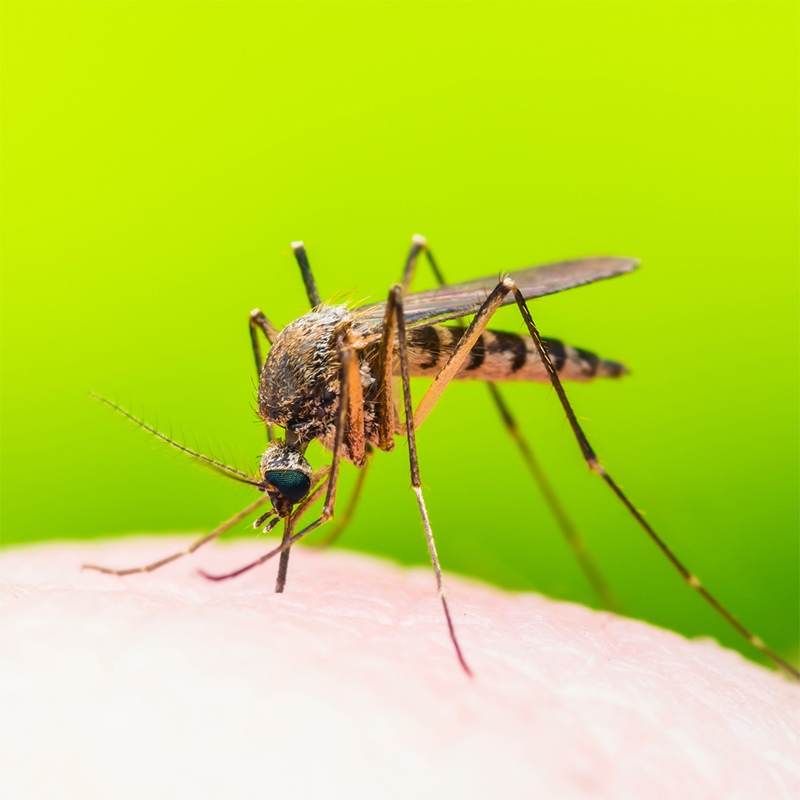
Research with CSIRO’s DiNeMo group, which harnesses network science and modelling to identify the most likely transmission paths for diseases after an infected person enters a region; and how disease surveillance can be improved by understanding factors affecting notification delays, has been applied to Dengue Fever in efforts to limit outbreak, morbidity and mortality. In collaboration with ACEMS, this expertise has been applied to a global model of COVID-19, and ARDC funding was applied for, for CSIRO to build a national scale mobility data asset for Australia (hosted by AURIN), to enable infectious disease research serving to improve public health responses and outcomes.
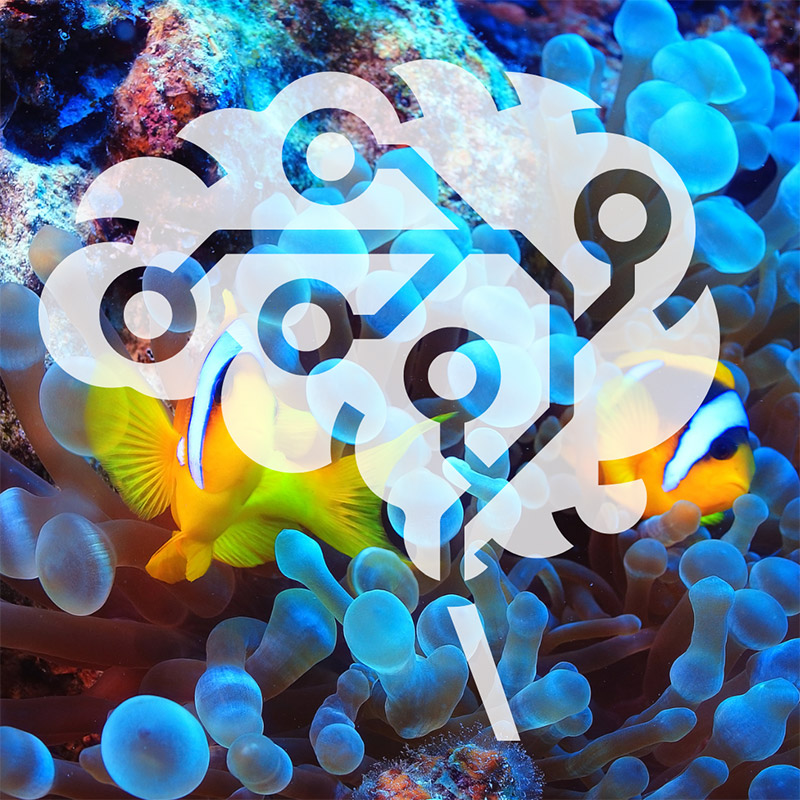
Analysis of reef images is key to reef monitoring, providing important observational data for input into predictive models. However, image analysis can be resource-intensive. Research in collaboration with AIMS has demonstrated significant benefits from using artificial intelligence (AI) technology for automated underwater image annotation. The study demonstrated data analysis and reporting can be accelerated by at least 200 times and at a fraction of the cost (1%), with advantages in terms of error and repeatability of estimations. Harnessing AI, can enable better resource allocation, and both compliment and augment the work of experts and citizen scientists.
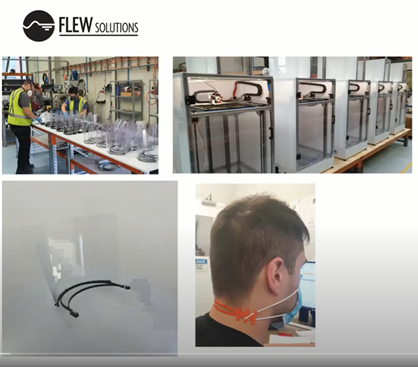
ACEMS AI Simon Denman and PhD student Ethan Goan have collaborated with industry partner FLEW Solutions to develop a computer vision and machine learning system to detect faults in 3D print jobs. This enables rapid intervention in print jobs when faults are detected, saving time, money, materials, and helping ensure the timely supply of medical supplies to hospitals for radiation therapy patients. To date, greater than 80% accuracy has been demonstrated in the innovative system. Further collaborative R&D is being pursued to increase commercial readiness for market. The technology will also help reduce wastage when 3DP is done by others, including should FLEW and its affiliated companies again rise to the challenge of coordinating (COVID-19) emergency distributed network 3DP of PPE to help hospitals in Australia/overseas, as they did in 2020
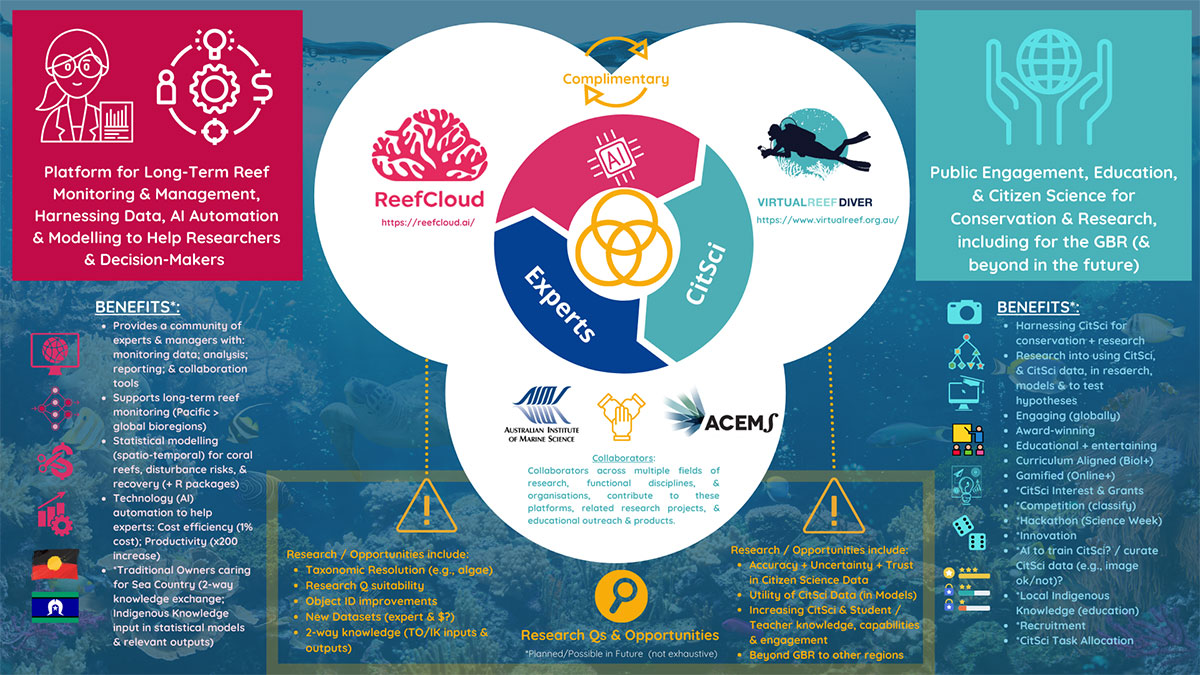
ACEMS continues to develop and use Virtual Reef Diver to engage and educate the public regarding the Great Barrier Reef and empower involvement, including as citizen scientists, contributing valuable observation data (through reef images and/or image classification). To date, this contribution includes 240.9K images, 3.6M data points, and more than 1000 images. This data helps improve coral cover models and predictions for reef health, and compliments work by AIMS and its ReefCloud. In 2020, new Virtual Reef Diver teaching resources (including a new curriculum practical and shiny app) were created, promoted and trialed. ACEMS continues to advance research to improve trust in citizen science data, to benefit this and other important conservation work.